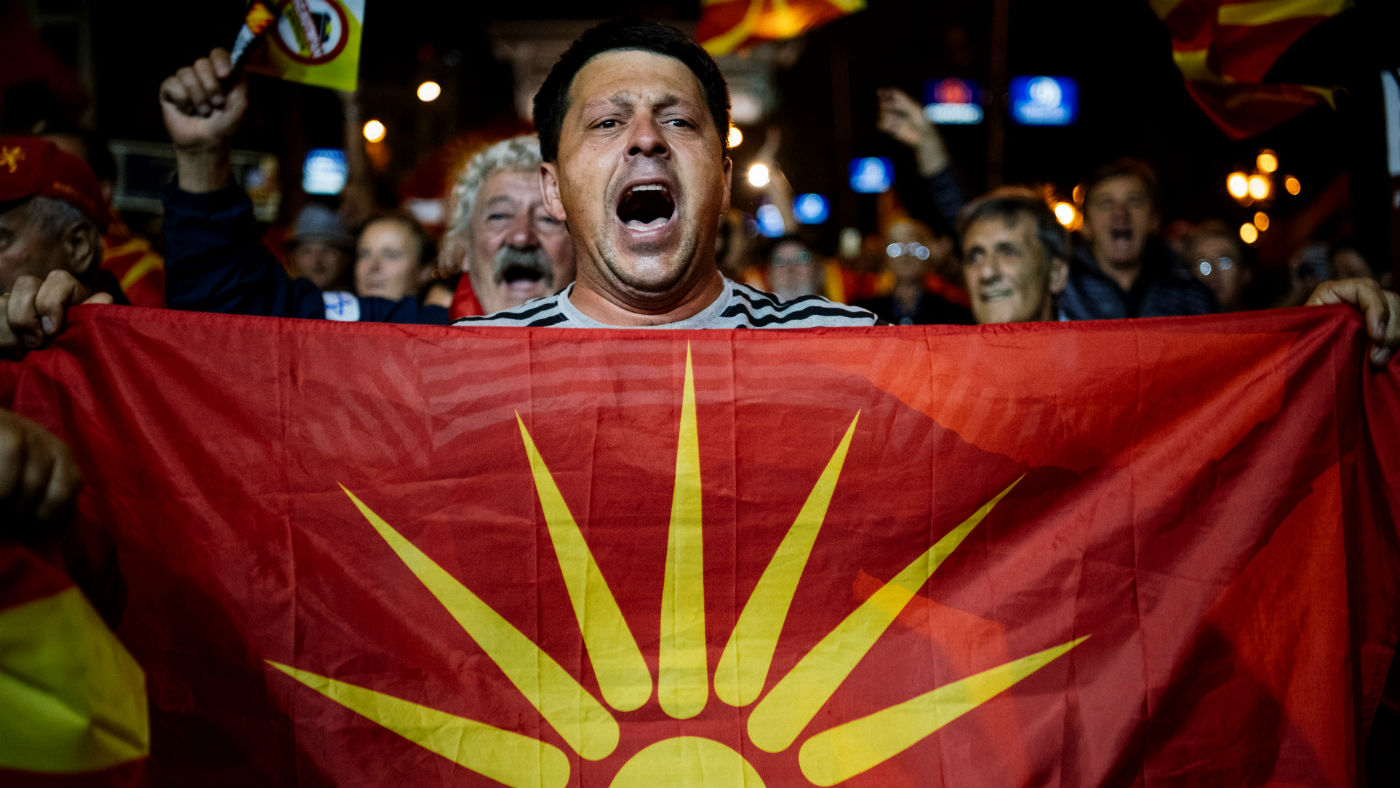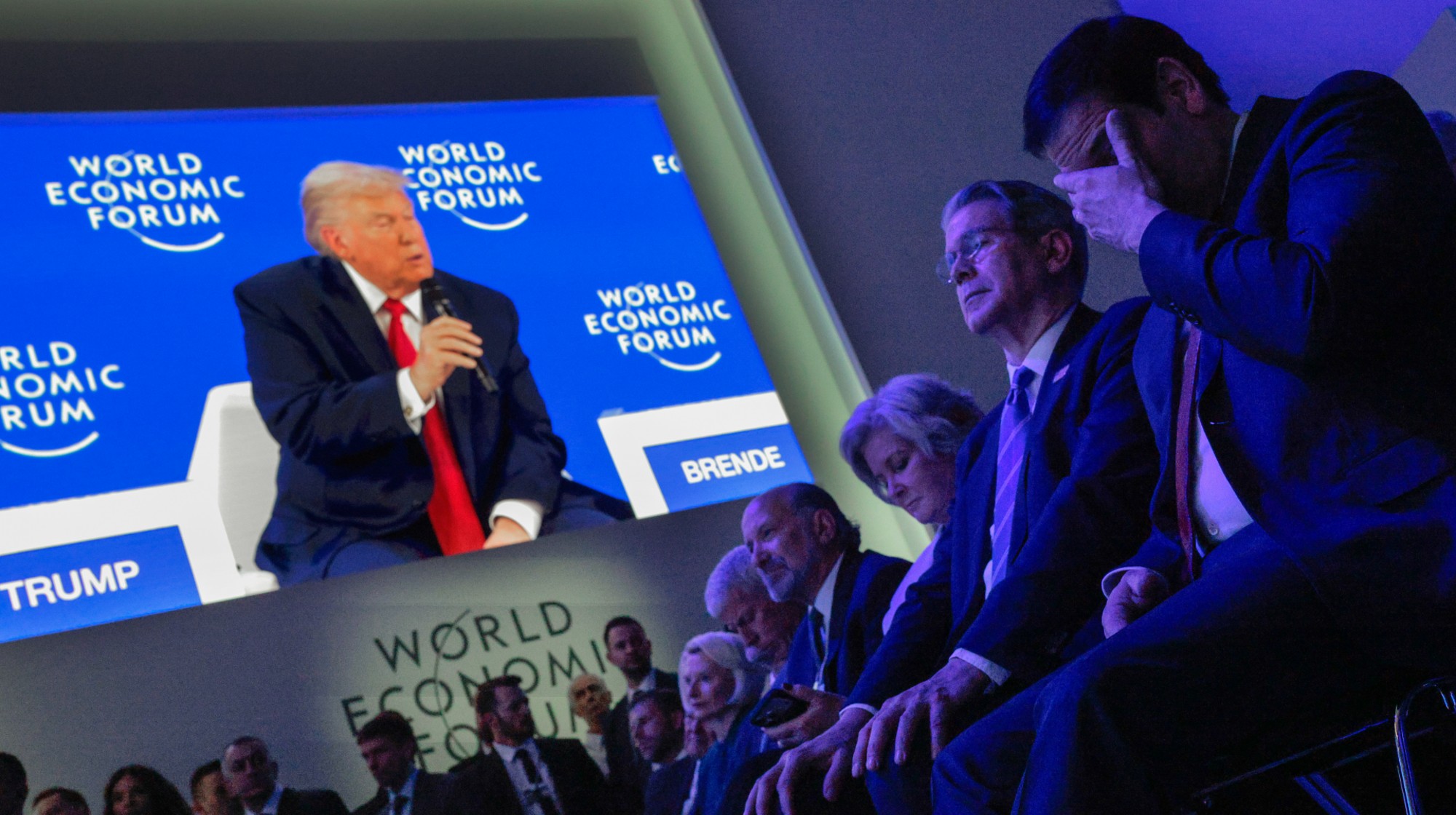Macedonians boycott referendum on name change
Vote would have paved the way for country to join EU and Nato, but now its future direction is uncertain

A free daily email with the biggest news stories of the day – and the best features from TheWeek.com
You are now subscribed
Your newsletter sign-up was successful
Just over a third of Macedonians have turned out to vote in a landmark referendum to change the country’s name to North Macedonia, putting their path to Nato and EU membership in doubt.
Even before polls closed, those urging a boycott of the referendum took to the streets to celebrate the low turnout, which “represents the first serious blow to policy of the pro-Western government since it took over in May last year”, reports Reuters.
In what was seen as a make-or-break vote on whether the strategic Balkan country would shift westwards, Macedonians were asked: “Are you in favour of membership in the European Union and Nato by accepting the deal between (the) Republic of Macedonia and Republic of Greece?”.
The Week
Escape your echo chamber. Get the facts behind the news, plus analysis from multiple perspectives.

Sign up for The Week's Free Newsletters
From our morning news briefing to a weekly Good News Newsletter, get the best of The Week delivered directly to your inbox.
From our morning news briefing to a weekly Good News Newsletter, get the best of The Week delivered directly to your inbox.
“The proposed “North” prefix might seem minor” says TIME, “but it touches a nerve in the former Yugoslav republic that declared independence in 1991, and in Greece”.
Athens has long maintained that its northern neighbour’s name represents a cultural and territorial claim on its own northern province of Macedonia, the birthplace of Alexander the Great.
The dispute has been a stumbling block in relations for nearly three decades ago, when the country officially became the Former Yugoslav Republic of Macedonia, or FYROM for short.
The break in the impasse between the two countries came in June, after months of talks between Zoran Zaev, the Macedonian prime minister, and his Greek counterpart, Alexis Tsipras.
A free daily email with the biggest news stories of the day – and the best features from TheWeek.com
Both leaders “have stuck their necks out politically and face trenchant opposition from domestic critics”, The Daily Telegraph says.
According to CNN, “many in Macedonia see it as a once-in-a-lifetime opportunity to kick-start an economic revival”, and Zaev, who brokered the deal, is banking on Nato membership bringing much needed investment to Macedonia.
Others, however, “deeply resent having to add a geographical qualifier to their country’s name, saying that the title North Macedonia is a humiliation and diminishes the country on the world stage” reports the Telegraph.
President Gjorge Ivanov was among those who said they would be boycotting the vote, describing the proposed deal as “historical suicide”.
“No vote has been as historic – or imbued with such sentiment – since the country declared independence in 1991”, says The Guardian. The referendum “comes against a backdrop of polarisation, potentially explosive emotion and Russia reportedly stepping up clandestine efforts to dash Macedonia’s embrace by the west”, the paper adds.
Polls before Sunday’s vote put support for joining the EU and Nato at around 70%, but all eyes were focused on turnout with opposition conservative and nationalist groups urging a boycott of the referendum as part of a large and organised disinformation campaign many believe was being orchestrated from Moscow.
Russia's keen interest in the vote is hardly surprising. NBC News says the Balkans “has been in a tug-of-war between Russia and Nato for years”,
The Kremlin openly opposed Sunday's vote, with Russia’s ambassador saying Macedonia could become a “legitimate target” if relations between Moscow and Nato deteriorate further.
US Secretary of Defence, James Mattis, said on his way to the capital Skopje last week there was “no doubt” Russia was transferring money and conducting a broader campaign to undermine the name change.
In a sign of how important Macedonia’s western orientation is for the region, and Europe as a whole, Mattis is just one of a series of international leaders to have descended on the tiny country of just two million people in recent weeks. Others include German Chancellor Angela Merkel, Nato Secretary General Jens Stoltenberg and EU's foreign policy chief Federica Mogherini
It appears, however, that the star treatment has failed to boost turnout with preliminary reports from electoral officials showing that just over a third of Macedonians voted in the referendum.
Under the Macedonian constitution, referenda must have a turnout of over 50% for the result to be valid, but the government had previously described Sunday’s vote as non-binding, meaning it could take the result as an accurate reflection of public opinion regardless of the turnout.
-
 The 8 best TV shows of the 1960s
The 8 best TV shows of the 1960sThe standout shows of this decade take viewers from outer space to the Wild West
-
 Microdramas are booming
Microdramas are boomingUnder the radar Scroll to watch a whole movie
-
 The Olympic timekeepers keeping the Games on track
The Olympic timekeepers keeping the Games on trackUnder the Radar Swiss watchmaking giant Omega has been at the finish line of every Olympic Games for nearly 100 years
-
 Epstein files topple law CEO, roil UK government
Epstein files topple law CEO, roil UK governmentSpeed Read Peter Mandelson, Britain’s former ambassador to the US, is caught up in the scandal
-
 Iran and US prepare to meet after skirmishes
Iran and US prepare to meet after skirmishesSpeed Read The incident comes amid heightened tensions in the Middle East
-
 Grok in the crosshairs as EU launches deepfake porn probe
Grok in the crosshairs as EU launches deepfake porn probeIN THE SPOTLIGHT The European Union has officially begun investigating Elon Musk’s proprietary AI, as regulators zero in on Grok’s porn problem and its impact continent-wide
-
 Israel retrieves final hostage’s body from Gaza
Israel retrieves final hostage’s body from GazaSpeed Read The 24-year-old police officer was killed during the initial Hamas attack
-
 China’s Xi targets top general in growing purge
China’s Xi targets top general in growing purgeSpeed Read Zhang Youxia is being investigated over ‘grave violations’ of the law
-
 Panama and Canada are negotiating over a crucial copper mine
Panama and Canada are negotiating over a crucial copper mineIn the Spotlight Panama is set to make a final decision on the mine this summer
-
 Trump backs off Greenland threats, declares ‘deal’
Trump backs off Greenland threats, declares ‘deal’Speed Read Trump and NATO have ‘formed the framework for a future deal,’ the president claimed
-
 Europe moves troops to Greenland as Trump fixates
Europe moves troops to Greenland as Trump fixatesSpeed Read Foreign ministers of Greenland and Denmark met at the White House yesterday